International
Romanian electoral authorities reject presidential candidacy of pro-Russian Georgescu
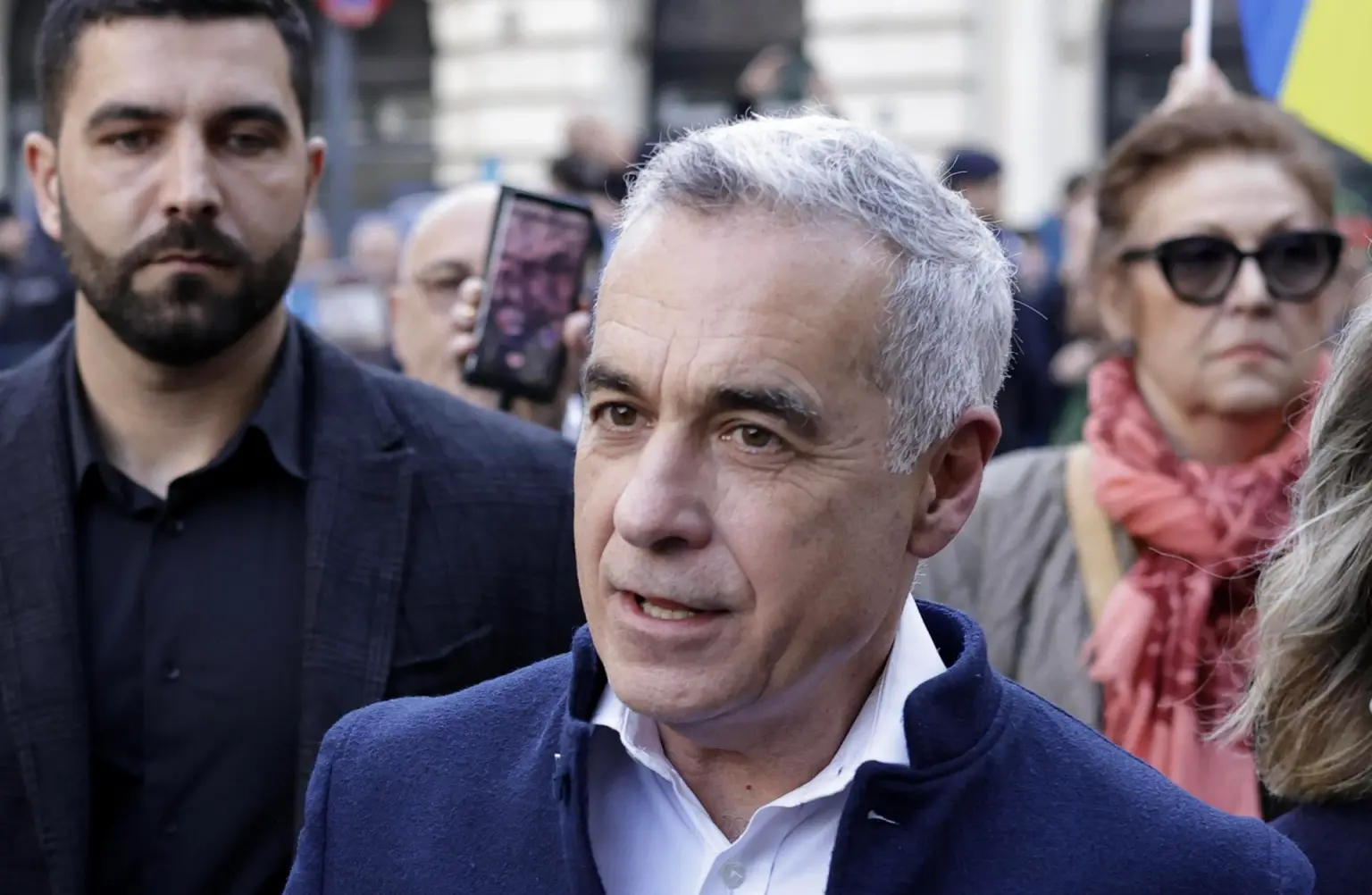
The Central Electoral Office of Romania rejected this Sunday the candidacy of the pro-Russian ultranationalist Călin Georgescu for the presidential elections of May 4 and in which he started as the favorite.
After this decision, a period of 24 hours is opened to file appeals with the Constitutional Court, which has an additional 48 hours to issue a ruling. This means that the final decision could be known on Wednesday night.
Georgescu won against all odds the first round of the Romanian presidential elections on November 24, subsequently annulled by the Constitutional Court for indications of illegal financing and Russian interference.
Georgescu’s supporters gathered in front of the Central Electoral Office and reacted violently, breaking the fences installed by the Police to cordon off the building.
“A direct blow to the heart of world democracy!”, said Georgescu on the social network X when he learned of the decision and added: “Europe is now a dictatorship, Romania is under tyranny!”
The leader of the Alliance for the Union of Romanians (AUR), George Simion, whose ultra-nationalist and Eurosceptic party is currently the main opposition force in the country, described the rejection of Georgescu’s candidacy as an undemocratic act.
“It is a continuation of the coup d’état of December 6,” he wrote on Facebook in reference to the date on which the Constitutional Court annulled the presidential elections.
Georgescu, relatively little known in Romania until a few months ago, won in the first round thanks to a campaign on social networks, especially TikTok, in which he claimed not to have invested anything.
His message against traditional parties attracted above all young voters and voters from rural areas, disenchanted with corruption and the low standard of living in the country of 19 million inhabitants bordering Ukraine.
The leader of the ultra-nationalist party POT, Anamaria Gavrilă, also denounced the decision, said that Romania is “a dictatorship” and questioned the vote of the 14 members of the Central Electoral Office.
According to sources cited by the Romanian newspaper G4Media, the candidacy was rejected for both formal and substantive reasons.
One of the determining factors was the declaration of property presented by Georgescu, which presented inconsistencies compared to the one he had delivered in the November elections.
The ultra-nationalist candidate, who has defended an approach to Russia and has questioned that Ukraine was a state, defends a reactionary ideology and in the past praised Romanian fascist leaders responsible for the Holocaust in the country during World War II.
In the latest polls, Georgescu was the favorite for the elections, monopolizing more than 35% of the vote, which guaranteed him to reach the second round.
At the end of February, the Romanian Prosecutor’s Office accused him of six crimes, including committing actions against the constitutional order and creating a fascist and anti-Semitic organization.
The Prosecutor’s Office announced the charges after interrogating him for more than four hours and in addition to the aforementioned crimes he was suspected of continued falsehood about his assets and the financing of his campaign.
International
U.S. and Mexico Reach Deal to Address Water Deficit Under 1944 Treaty
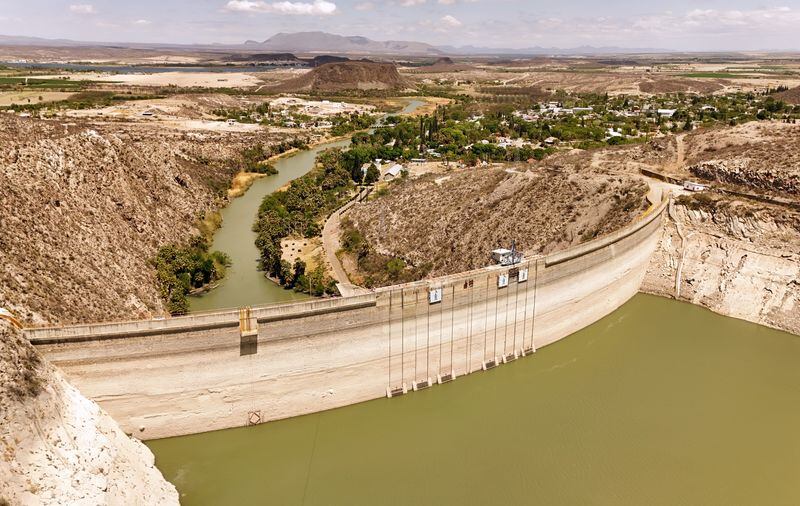
The United States and Mexico have reached an agreement to comply with current water obligations affecting U.S. farmers and ranchers and for Mexico to cover its water deficit to Texas under the 1944 Water Treaty, the U.S. Department of Agriculture said in a statement.
The department уточified that the agreement applies to both the current cycle and the water deficit from the previous cycle.
On Monday, U.S. President Donald Trump accused Mexico of failing to comply with the water-sharing treaty between the two countries, which requires the United States to deliver 1.85 billion cubic meters of water from the Colorado River, while Mexico must supply 432 million cubic meters from the Rio Grande.
Mexico is behind on its commitments. According to Washington, the country has accumulated a deficit of more than one billion cubic meters of water over the past five years.
“This violation is severely harming our beautiful crops and our livestock in Texas,” Trump wrote on Monday.
The Department of Agriculture said on Friday that Mexico had agreed to supply 250 million cubic meters of water starting next week and to work toward closing the shortfall.
Agriculture Secretary Brooke Rollins, quoted in the statement, said Mexico delivered more water in a single year than it had over the previous four years combined.
Trump has said that if Mexico continues to fall short of its obligations, the United States reserves the right to impose 5% tariffs on imported Mexican products.
Mexico’s Deputy Foreign Minister for North America, Roberto Velasco, said that a severe drought in 2022 and 2023prevented the country from meeting its commitments.
International
Several people shot in attack on Brown University campus
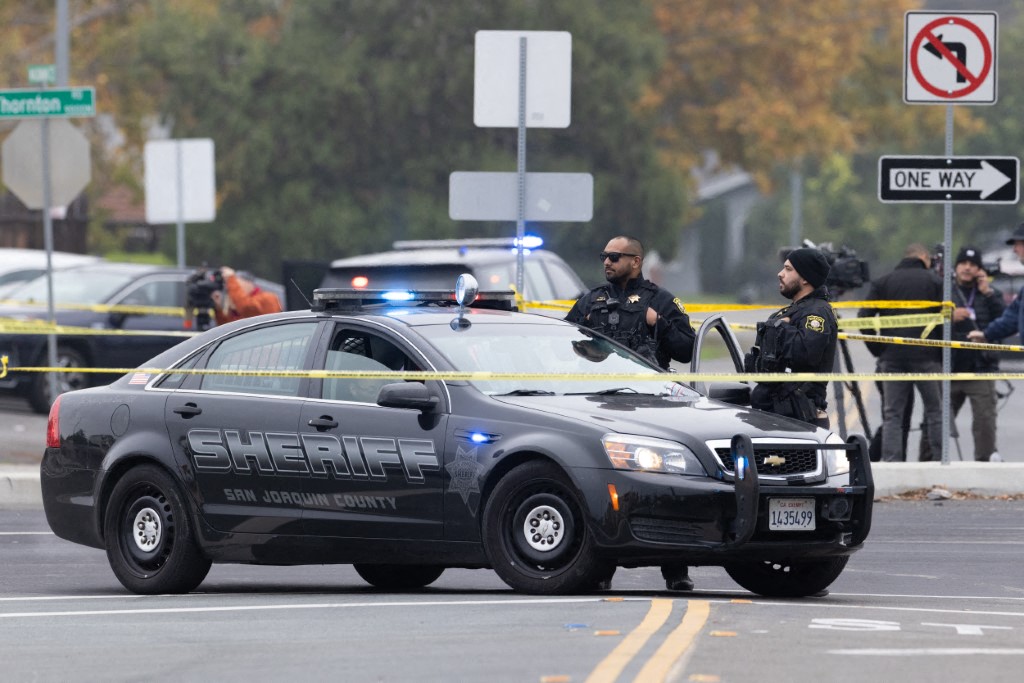
Several people were shot on Saturday in an attack on the campus of Brown University, in the northeastern United States, local police reported.
“Shelter in place and avoid the area until further notice,” the Providence Police Department urged in a post on X. Brown University is located in Providence, the capital of the state of Rhode Island.
U.S. President Donald Trump said on his social media platform Truth Social that he had been briefed on the situation and that the FBI was on the scene.
At 5:52 p.m. local time (11:52 p.m. GMT), Brown University said the situation was still “ongoing” and instructed students to remain sheltered until further notice.
After initially stating that the suspect had been taken into custody, Trump later posted a second message clarifying that local police had walked back that information. “The suspect has NOT been apprehended,” the U.S. president said.
International
Colombia says it would not reject Maduro asylum request as regional tensions escalate
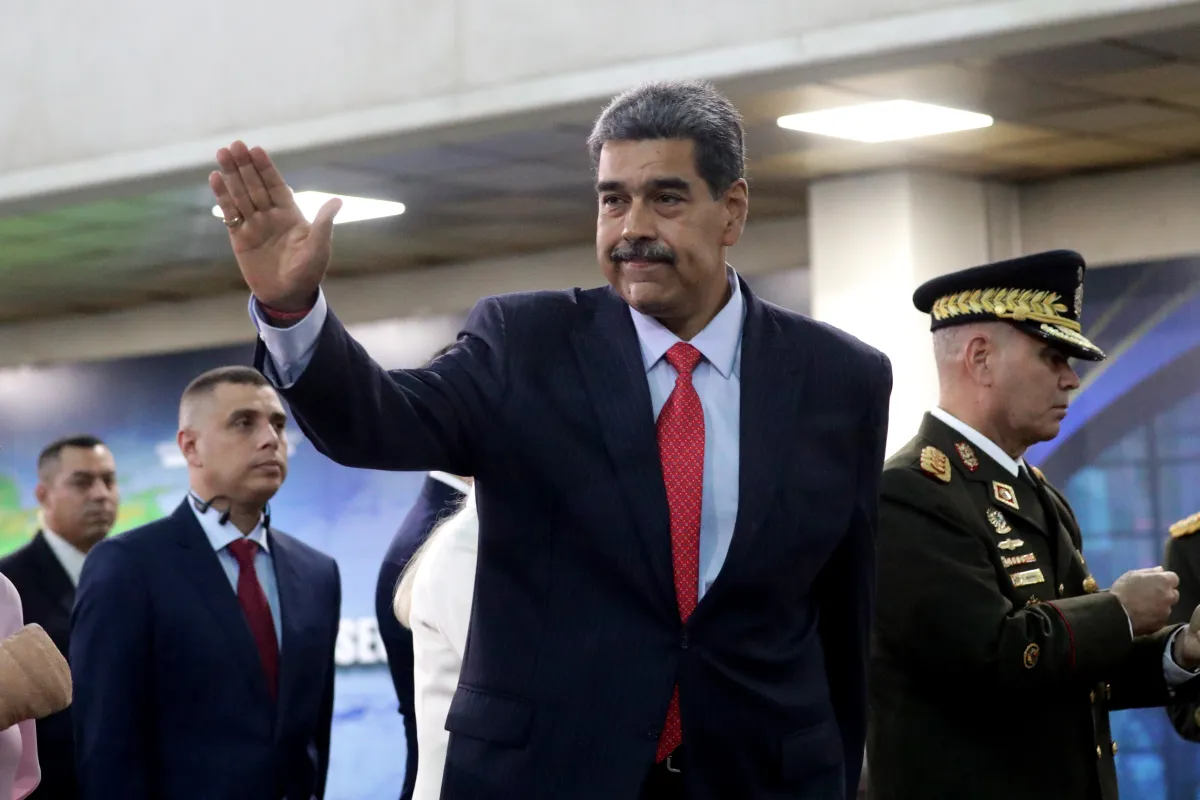
The Colombian government stated on Thursday that it would have no reason to reject a potential asylum request from Venezuelan President Nicolás Maduro should he leave office, as regional tensions persist over the deployment of U.S. military forces in the Caribbean since August.
“In the current climate of tension, negotiations are necessary, and if the United States demands a transition or political change, that is something to be assessed. If such a transition results in him (Maduro) needing to live elsewhere or seek protection, Colombia would have no reason to deny it,” said Colombian Foreign Minister Rosa Villavicencio in an interview with Caracol Radio.
However, Villavicencio noted that it is unlikely Maduro would choose Colombia as a refuge. “I believe he would opt for someplace more distant and calmer,” she added.
Colombian President Gustavo Petro also commented on Venezuela’s situation on Wednesday, arguing that the country needs a “democratic revolution” rather than “inefficient repression.” His remarks followed the recent detention and passport cancellation of Cardinal Baltazar Porras at the Caracas airport.
“The Maduro government must understand that responding to external aggression requires more than military preparations; it requires a democratic revolution. A country is defended with more democracy, not more inefficient repression,” Petro wrote on X (formerly Twitter), in a rare public criticism of the Venezuelan leader.
Petro also called for a general amnesty for political opponents and reiterated his call for forming a broad transitional government to address Venezuela’s prolonged crisis.
Since September, U.S. military forces have destroyed more than 20 vessels allegedly carrying drugs in Caribbean and Pacific waters near Venezuela and Colombia, resulting in over 80 deaths.
U.S. President Donald Trump has repeatedly warned that attacks “inside Venezuela” will begin “soon,” while Maduro has urged Venezuelans to prepare for what he describes as an impending external aggression.
-
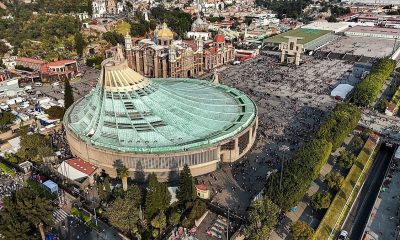
 International4 days ago
International4 days agoMexico City prepares for 13 million pilgrims at Basilica of Guadalupe
-

 International3 days ago
International3 days agoWashington declares State of Emergency as atmospheric river brings severe flooding
-

 International3 days ago
International3 days agoU.S. to require five-year social media history from tourists under Visa Waiver Program
-

 Central America4 days ago
Central America4 days agoHonduras’ electoral chief reports ongoing technical issues but says results remain intact
-
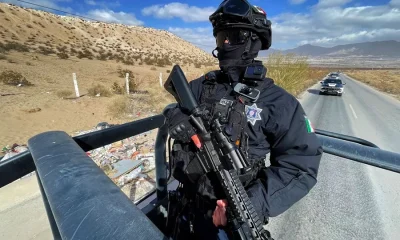
 Central America5 days ago
Central America5 days agoMexico and Guatemala launch joint security operation after Agua Zarca border attack
-

 Central America4 days ago
Central America4 days agoU.S. accuses Ortega regime of systematic human rights abuses in Nicaragua
-

 Central America4 days ago
Central America4 days agoU.S. finds no evidence of fraud in Honduras election despite delays
-
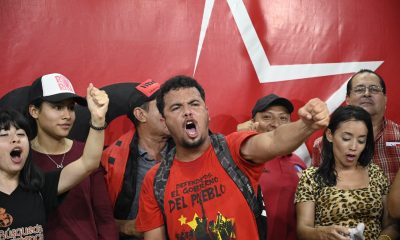
 Central America5 days ago
Central America5 days agoHonduran University: Nullifying elections without proof of fraud undermines popular sovereignty
-

 Central America3 days ago
Central America3 days agoOAS and EU urge honduran political actors to respect vote results and avoid unrest
-

 Central America5 days ago
Central America5 days agoCNA director says Libre’s defeat stems from “lack of substance,” not messaging
-

 International2 days ago
International2 days agoCuba battles out-of-control dengue and chikungunya epidemic as death toll rises to 44
-

 Central America2 days ago
Central America2 days agoHonduras election crisis deepens as CNE president denounces intimidation attempts
-

 International2 days ago
International2 days agoColombia says it would not reject Maduro asylum request as regional tensions escalate
-
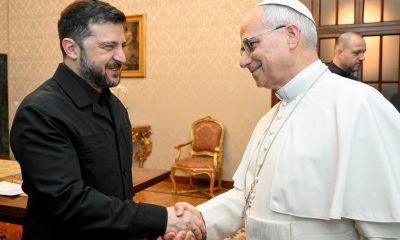
 International5 days ago
International5 days agoZelensky meets Pope Leo XIV as review of U.S. peace plan continues
-

 International3 days ago
International3 days agoSix ecuadorian soldiers jailed pending trial for alleged extrajudicial execution
-

 International2 days ago
International2 days agoEcuador on track for record violence as homicides hit highest level in Latin America again
-

 International13 hours ago
International13 hours agoSeveral people shot in attack on Brown University campus
-

 International10 hours ago
International10 hours agoU.S. and Mexico Reach Deal to Address Water Deficit Under 1944 Treaty


























